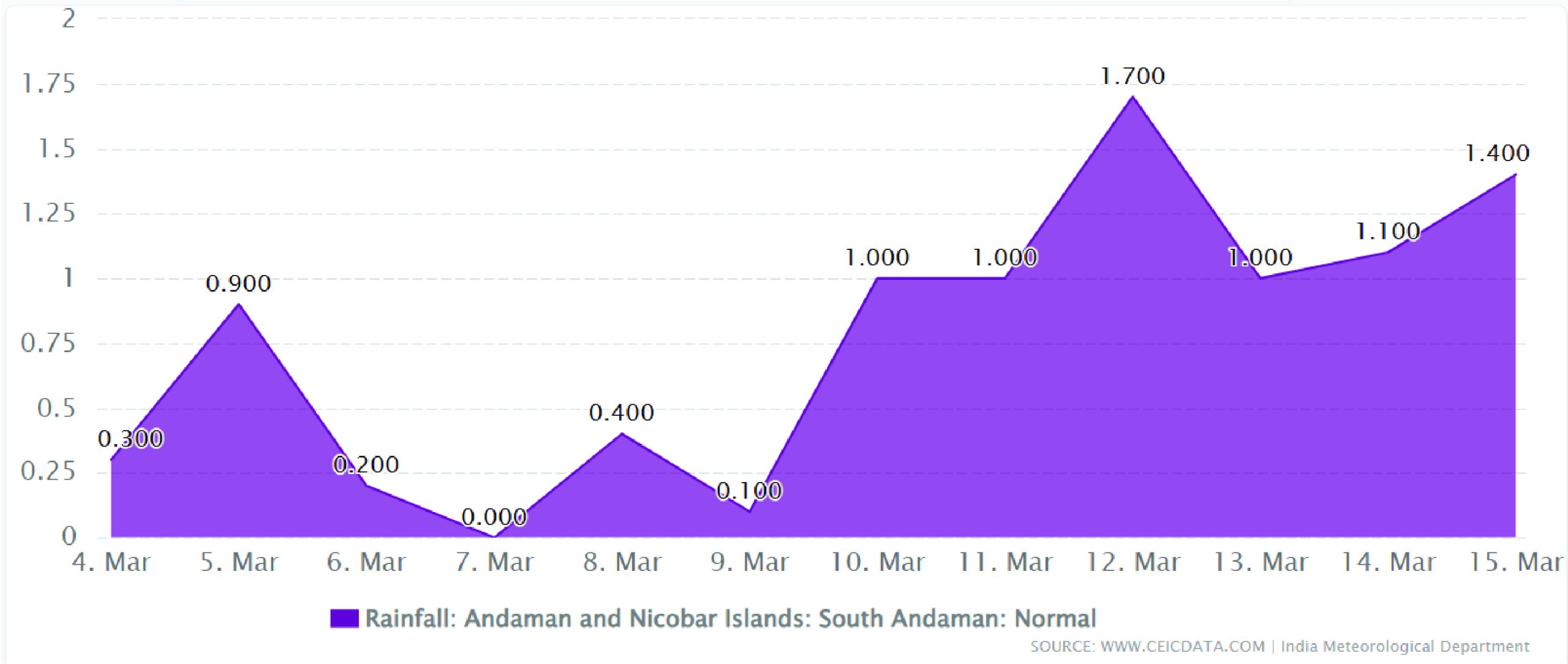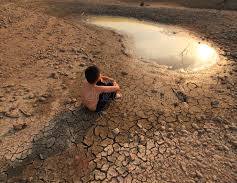– Sajida A. Zubair
Water is essential for all life forms, and its scarcity poses a significant challenge worldwide, including in India, where a substantial portion of the population lacks access to clean water. With International Water Day approaching on March 22, it becomes crucial to delve into sustainable water management practices, drawing insights from Islamic teachings that accentuate water’s value as a divine blessing and advocate for its equitable distribution.
India is home to various rivers, but rapid urbanization, pollution, deforestation, and unsustainable water management practices pose significant threats to the health and sustainability of these rivers. As custodians of these invaluable resources, India must prioritize conservation efforts and adopt holistic approaches to ensure the vitality of its rivers.
India’s water landscape is characterized by extremes – from devastating floods caused by excessive rains to crippling droughts resulting from scarcity. These contrasting phenomena wreak havoc on communities, agriculture, and infrastructure, emphasizing the urgent need for resilient water management strategies.
Excessive rainfall in India often leads to catastrophic flooding, causing widespread destruction and loss of life. For instance, the Chennai floods of 2015 wreaked havoc on the lives of its residents. The floods in Kerala in 2018 submerged entire villages, displacing thousands, and causing extensive damage to infrastructure. Similarly, the floods in Mumbai in 2005 paralyzed the city, highlighting the vulnerability of urban areas to heavy rainfall.
Conversely, the scarcity of rainfall in certain regions of India triggers severe droughts, jeopardizing agricultural productivity and livelihoods. In states like Maharashtra, recurring droughts have pushed farmers to the brink, leading to agrarian distress and farmer suicides. The water crisis in Chennai in 2019, exacerbated by depleted reservoirs and failed monsoons, left millions grappling with acute water shortages.
This year, Bengaluru has been grappling with severe water scarcity, exacerbating the challenges faced by its residents. Depleted reservoir levels, coupled with inadequate rainfall, have strained the city’s water supply, leaving many neighborhoods parched and reliant on erratic tanker deliveries. Efforts to address the situation, including water conservation campaigns and infrastructure upgrades, are underway, but the urgent need for sustainable solutions to alleviate Bengaluru’s water woes remains pressing. Reports point to the failure of the administration to implement effective measures to mitigate the crisis. The blame can be put on every government over the last 40 years for unplanned urbanization. In the 1970s, Bengaluru had 68% green cover and now 86% of the city area is concrete. In 1961, there were 262 lakes and now the city has only 81 lakes. The real estate mafia has done extensive construction on all the other lakes and the remaining lakes are now used as dumping grounds for sewage and chemical waste. This unplanned city development was the major cause of floods last year.
Both excessive rains and scarcity of rains have a profound impact on agriculture, which forms the backbone of India’s economy. Floods destroy crops, inundate farmlands, and disrupt supply chains, leading to food shortages and economic losses. Conversely, droughts result in crop failures, water stress, and reduced yields, perpetuating food insecurity and poverty.
India’s infrastructure is ill-equipped to handle the vagaries of extreme weather events. Inadequate drainage systems exacerbate flooding in urban areas, while deficient irrigation networks contribute to water scarcity in rural regions. The lack of climate-resilient infrastructure leaves communities vulnerable to the devastating impacts of erratic rainfall patterns.
While the water crisis of mainland India is reaching its heights, the Andaman and Nicobar Islands are plagued by intricate water scarcity issues. It’s a saga of ‘Water! Water! everywhere and not a drop to drink.’ While the islands receive substantial rainfalls, the lack of effective infrastructure and management mechanisms hampers water accessibility for residents.
 According to the Meteorological Analysis published in 2022 by the Directorate of Economics and Statistics which contains data from 2011 to 2022 along with historical data on the climatic condition of the Islands viz., Rainfall, Temperature, Humidity, Wind Speed and Earthquake, “A & N Islands has a tropical humid climate and has no distinct winter season. It gets rain almost throughout the year (from) under the influence of southwest monsoon during mid-May to the end of September and under northeast monsoon from November to January. The southwest monsoon touches the Indian soil first in the A & N Islands and then proceeds towards the Indian mainland. The average annual rainfall approximately ranges between 1400 mm to 3800 mm. As per the IMD report during 2022, 15 cyclonic disturbances (three cyclonic storms and 12 depressions) formed over the north Indian Ocean.”
According to the Meteorological Analysis published in 2022 by the Directorate of Economics and Statistics which contains data from 2011 to 2022 along with historical data on the climatic condition of the Islands viz., Rainfall, Temperature, Humidity, Wind Speed and Earthquake, “A & N Islands has a tropical humid climate and has no distinct winter season. It gets rain almost throughout the year (from) under the influence of southwest monsoon during mid-May to the end of September and under northeast monsoon from November to January. The southwest monsoon touches the Indian soil first in the A & N Islands and then proceeds towards the Indian mainland. The average annual rainfall approximately ranges between 1400 mm to 3800 mm. As per the IMD report during 2022, 15 cyclonic disturbances (three cyclonic storms and 12 depressions) formed over the north Indian Ocean.”
Climate change and global warming have reduced the rainfall and elongated the summers resulting in the water crisis. The limited groundwater is not sufficient; hence, Islanders now get supplied water by the local administration only once in 3 to 5 days.
Another reason for this severe water crisis is the influx of population to the islands which has limited resources. There is no proper water harvesting planning on an administrative level. The water crisis in the Islands demands urgent action and concerted efforts to overcome administrative failures and systemic challenges. By addressing these issues and fostering community participation, we can pave the way for sustainable water management practices that ensure equitable access to clean water for all residents.
Every local and central administration must adopt comprehensive adaptation and mitigation strategies. Investing in flood control measures, such as river embankments and stormwater drainage systems, can help mitigate the impact of excessive rains. While policies exist, their effective implementation is hindered by bureaucratic hurdles and insufficient stakeholder engagement. Streamlining administrative processes and enhancing accountability are essential for translating policies into tangible outcomes.
Similarly, promoting water conservation, watershed management, and drought-resistant crops can enhance resilience to water scarcity. Addressing the water crisis requires a holistic approach that integrates administrative reforms, infrastructure upgrades, and community-driven initiatives. Inadequate community participation and awareness hinder effective water management. Empowering communities through education and participatory decision-making processes is crucial for fostering sustainable water management practices.
Having understood the water crisis and administrative management of the situation, it is imperative to mention the Islamic teachings that underscore the significance of water as a divine gift essential for sustaining life. The Quran emphasizes the importance of water in numerous verses, portraying it as a symbol of purification, sustenance, and blessing. For instance, Surah Al-Anbiya (21:30) states, “We made from water every living thing,” highlighting the fundamental role of water in creation. Additionally, Prophet Muhammad ﷺ stressed the importance of conserving water, advising against wastefulness even when accessing water from flowing rivers. Islamic principles advocate for responsible stewardship of natural resources, including water.
Muslims are considered stewards (Khalifah) of the Earth, entrusted with its care and preservation. This principle emphasizes the responsible use of water resources to ensure their sustainability for future generations. Islamic teachings promote equity and justice in the distribution of resources, including water.
Access to clean water is considered a basic human right, and efforts should be made to ensure equitable access for all members of society, regardless of their socioeconomic status. The concept of israf, or avoidance of extravagance and wastefulness, is central to Islamic teachings. Muslims are encouraged to use water judiciously and avoid unnecessary waste in daily activities.
By implementing proactive measures to address these challenges, India can build resilience, ensure water security, and mitigate adverse impacts of extreme weather events. As climate change continues to amplify these phenomena, urgent action is imperative to safeguard India’s water resources and foster a more resilient future.




